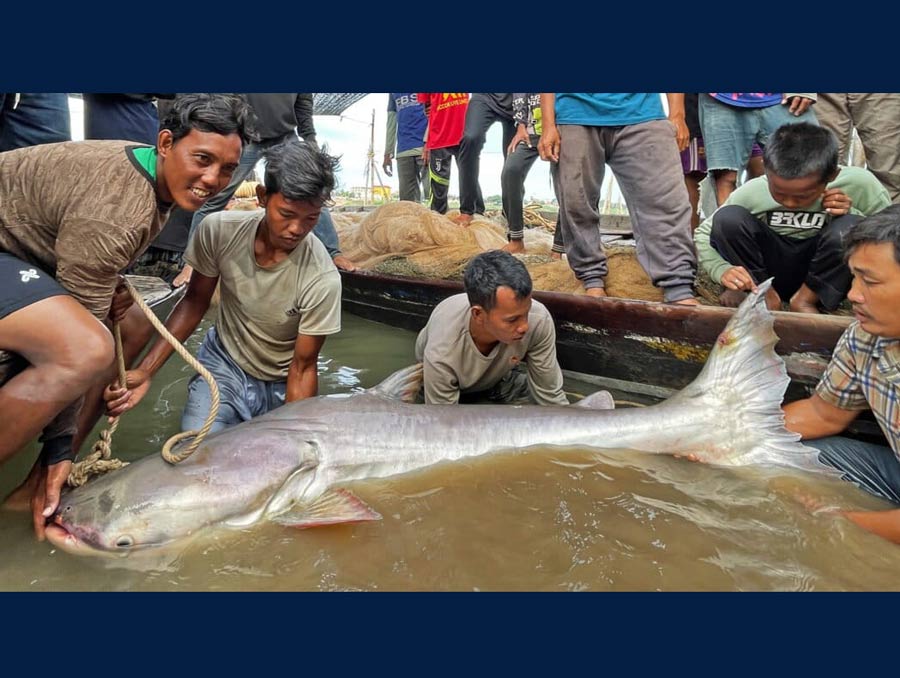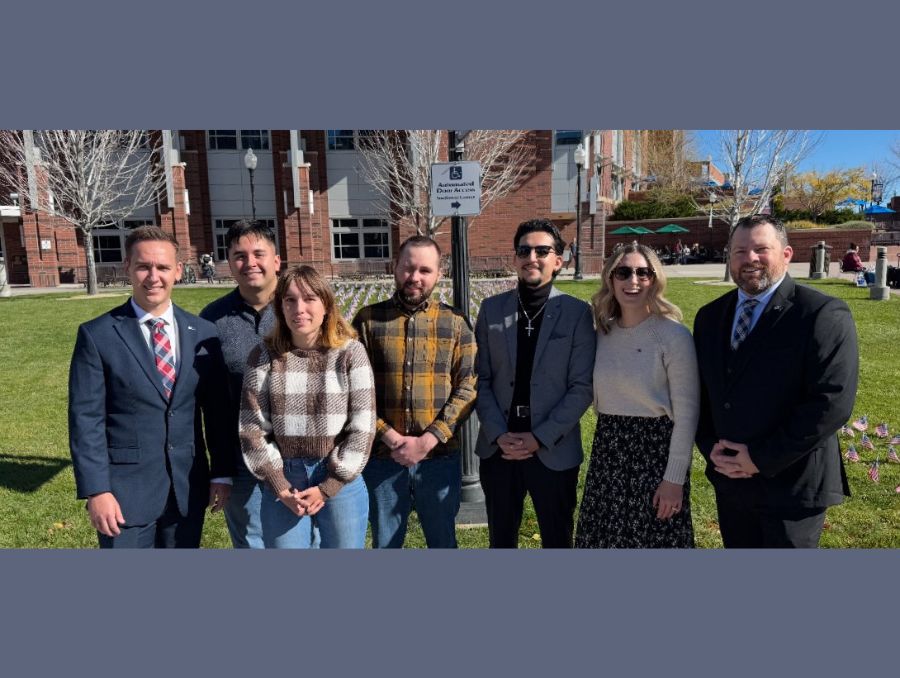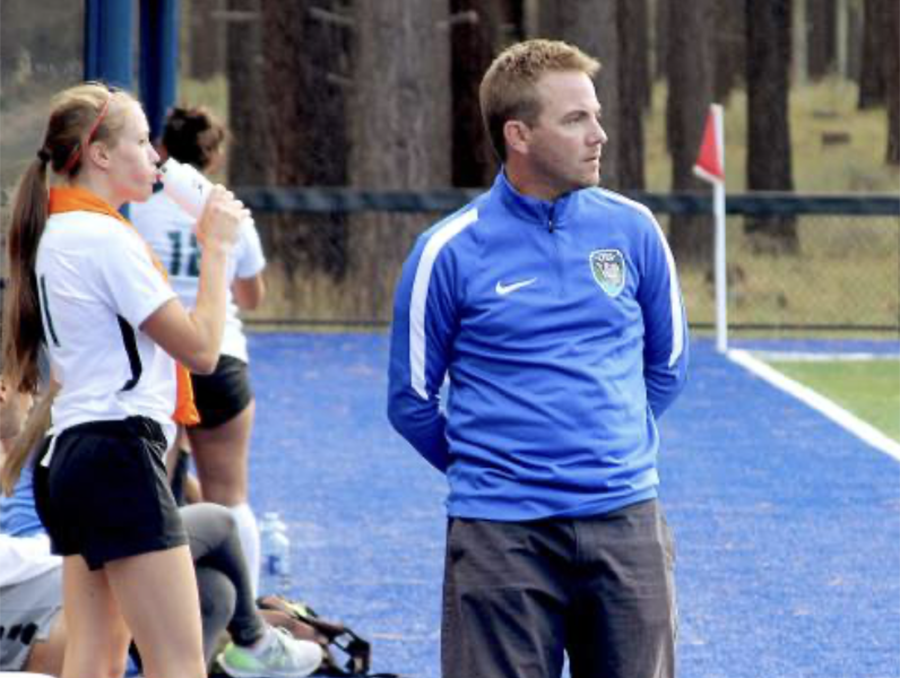GetEducated.com, a consumer group dedicated to assisting students in comparing and rating accredited online degree programs, colleges and universities, has named three University of Nevada, Reno online degree programs as "Best Buys": the Executive MBA and two master's degree programs in education.
The Executive MBA (EMBA), offered by the College of Business in partnership with Extended Studies, was ranked the number 42 "Best Buy" in the "Best Affordable Accredited Online MBA Programs" category. The program costs $24,000 and is taught by the same faculty that teach the College's part-time MBA program, which is ranked number four in the country by Bloomberg BusinessWeek. The program meets the accreditation standards of the Association to Advance Collegiate Schools of Business, the highest attainable level of accreditation in business education. The first cohort, admitted in fall 2011, included 13 professionals from California, Las Vegas and northern Nevada.
"Word of the program has spread quickly," said Kambiz Raffiee, the program's director. "We now have 29 professionals from six states, Australia and Dubai admitted into the program this fall as the second cohort."
Students enrolled in the program, mostly executive-level working professionals, give it high marks.
"The EMBA program has exceeded all of my expectations by combining a comprehensive program, expert faculty, and sophisticated technology that delivers the best of both worlds: web-based learning and the tradition of the University of Nevada, Reno," said Mark Behl, CFO of Renown Health in Reno.
The two "Best Buy" master's degree programs in education, offered by the College of Education in partnership with Extended Studies, include the Master of Science in Equity and Diversity in Education and the Master of Education in Literacy Studies. They were ranked number 31 and number 36 "Best Buys," respectively.
The programs range in cost from about $11,186 to $16,115, depending on which program and whether the student is a resident or from out of state. Both programs are accredited by the Northwest Commission on Colleges and Universities.
"The College is pleased to receive this recognition for our online programs," said Chris Cheney, dean of the College of Education. "We have developed these programs, as well as other online courses and sequences, so that educators can engage in deep study in the latest research and promising practices, while working in a manner that makes sense for busy professionals."
In fact, the University now offers seven entirely online master degree programs, four in education, one in behavior analytic psychology, one in justice management and the EMBA. It also offers, in collaboration with its sister institution UNLV, the Doctorate of Nursing Practice online program. In addition, there are a handful of certification and credentialing programs offered entirely online, including the Graduate Certificate in Renewable Energy and programs in specific areas of psychology and addiction treatment.
According to Fred Holman, vice provost of Extended Studies at the University, "Graduate education is one of the niches we really have for online programing, given the bench strength we have among faculty. The retention rate is very good. The professionals already in the field value the degrees they are getting and are using the online program option so they can still manage their days and their careers."
Holman said there are now more than 110 fully online for-credit courses offered at the University. That's about 44 percent more than three years ago, and he said the demand continues to grow.
"Beyond online, the use of technology is the wave of the future, and each institution of higher education has to decide how we want to use it," he said. "We try to make very strategic decisions as to what we're choosing to do so that we maintain or exceed the level of instruction expected from a tier-one University," he said, referring to the University's placement in in the top category of U.S. News and World Report's annual "best colleges" rankings.
About 85 percent of those enrolled in a fully online course are currently enrolled students who also attend regular classroom or hybrid courses, which include reduced time in the classroom supplemented with online work.
"Even many undergraduate students are juggling other responsibilities, working full-time or part-time, so mixing some fully online and hybrid courses in their course schedules offers them a little more flexibility," he said.
But, Holman said that fully online courses put more responsibility on the student to be self-disciplined and self-motivated, and they aren't for everyone. More time and planning are also required on the part of the instructors, designing the entire course and constantly corresponding with enrolled students, individually and as a group.
"The content is still always faculty-driven," he said. "They play a pivotal role, just as they do in the classroom courses. They pay attention to detail and delivery. We just show them the way that technology can enhance what they're trying to do."
According to Robert Newbury, manager and instructional designer in Teaching and Learning Technologies at the University, 2,600 - more than three quarters of the 3,400 or so courses offered at the University - use WebCampus, the University's online course management system, in some way to incorporate the use of technology into their courses. Three years ago, he said only about 1,100 courses were using the system. His department helps faculty to use WebCampus and incorporate the use of technology into the classroom, whether it is a minor or major way.
For the fourth consecutive year, a course taught using WebCampus at the University won a Blackboard Exemplary Course Award, an international award that recognizes innovative courses using technology to enhance learning. Principles of Biological Investigations, taught by Elena Pravosudova, associate professor of biology, was one of only 36 courses internationally to receive a 2012 Blackboard Catalyst Award for Exemplary Courses from Blackboard Inc. The Instructional Design Team works with faculty to develop and implement technology that improves education.
"The real push for use of technology in the classroom is coming from the students," Newbury said. "They expect it." This view is reaffirmed by Holman, who pointed out how much technology is now used at the high school level and that 46 states now have some sort of virtual/online high school.
According to Serge Herzog, the University's director of institutional analysis, about 5 percent of all course enrollment at the University last fall was in fully online courses. Faculty discussion across campus regarding continued expansion of online learning notes that online courses are necessary to accommodate student needs, schedules and expectations; provide for working professionals important graduate programs that are needed in the community and the state; and eliminate possible bottlenecks in some programs that can be barriers to students graduating in four years.
Yet, instructors note that designing and teaching online courses isn't easy; most say it requires considerably more time and effort than traditional classroom teaching, and resources for help are stretched thin. They don't want quality to suffer; rather, they want to make sure their students are achieving the same learning outcomes whether they are learning online or in the classroom.
Although hard, universally agreed-upon statistics are difficult to come by, national data suggests there is a higher rate of class failure in fully online courses than in traditional or hybrid courses. At the University of Nevada, Reno, Herzog said the failure rate for web-based courses is 8 percent, while the failure rate for non-web courses is 6 percent, a very marginal difference.
According to Holman, the success of the University's online programs "speaks to the quality of our faculty at the University - our faculty give us an edge in providing quality online offerings."










